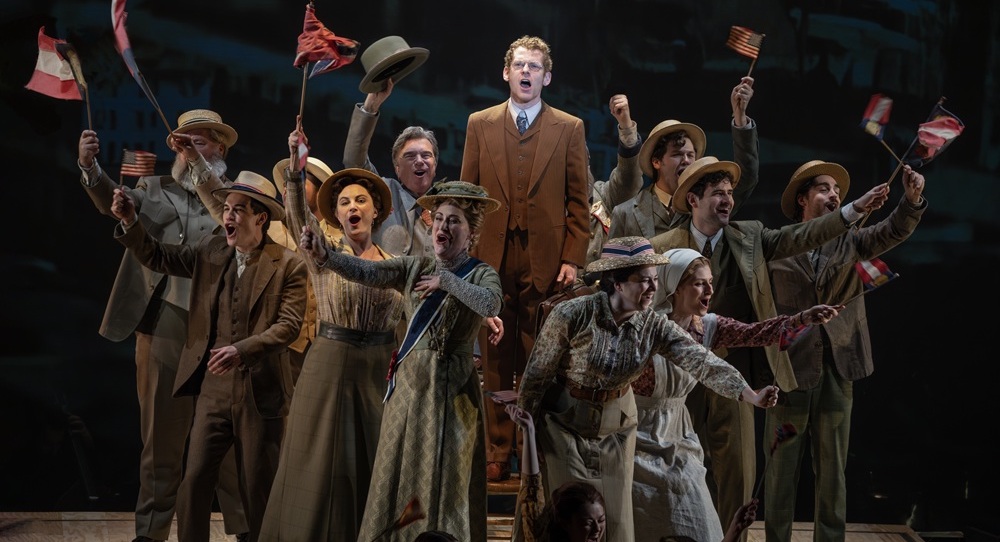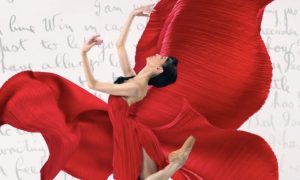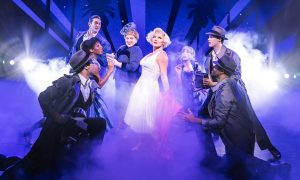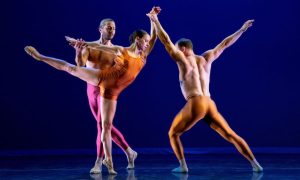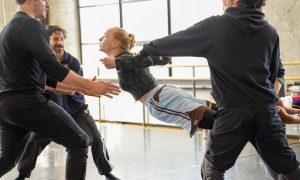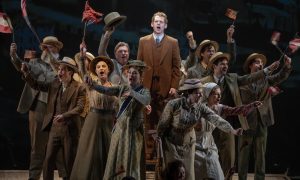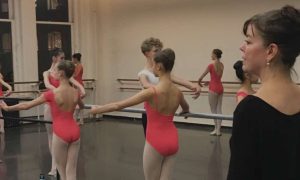Fox Theatre, Atlanta, GA.
April 1, 2025.
Tony-Award winning musical, Parade, has arrived in Atlanta, the city where the true story unfolded. Leo Frank, a New York Jew, and Lucille, his southern Jewish bride, are struggling to make a life in the “old red hills of Georgia.” When Leo is accused of an unspeakable crime, they are propelled into an unimaginable test of faith, humanity, justice and devotion.
There was something especially moving about watching Parade at the Fox Theatre, knowing the entirety of its history took place just minutes down the road. This revival production utilized projected photos of the real people who inspired the show, along with images of old newspaper headlines from the trial – a poignant reminder that these were real events with lasting impact, and of Director Michael Arden’s commitment to doing the story justice.
Max Chernin portrayed Leo Frank. Chernin was part of the original revival cast, and clearly handled Leo with care. His mannerisms encapsulated what you might expect of a “good Jewish boy” – polite, hardworking and reserved – all while floundering to find his place in the South after relocating from Brooklyn. His vocals were unmatched, carrying the emotions of the show with precision. A standout moment was in Leo’s statement: “It’s hard to speak my heart.” Chernin earnestly pled his case before the jury, emotions spilling out in full transparency, ending with admitting he was “terribly afraid.” During intermission, Chernin remained onstage in his prison uniform while pacing the jail cell – a powerful reminder that his fate still hung in the balance while the audience went about their intermission business.
Talia Suskauer played Leo’s spunky better half, Lucille. Her marriage to Leo began with somewhat platonic undertones. Leo, focused on building the business to provide for their new family, seemed to carry his professionalism into the marriage relationship. Suskauer remained the loyal wife, but as Leo’s case progressed, so did her fire to defend him. As Act II began, their marriage became a much stronger theme, and Suskauer’s vocals, and character development, shone. “Do It Alone” was the turning point, as Sauskauer now made her case before Leo that she was willing and capable of fighting for him. Suskauer was the perfect balance to Chernin – both in vocals and character.
Lauren Yalango-Grant and Christopher Cree Grant were co-choreographers. While Parade may not have flashy dance numbers, movement was an intricate part of the performance. Most notably, the cast “paraded” in some form or fashion throughout the show. The set provided three levels, and while much of the main action took place on the center, tallest, level, the rest of the cast would move up, down, and around, adding to the growing tension. Another method utilized was “shadowing.” During the court proceedings, as one character would tell their side of the case, Leo would shadow their movements and mouth their words. I found it a fascinating way to reiterate his dependency on others’ testimonies. There were also numerous scenes of slow-motion movement, particularly during the trial. These were executed with such excellency; I can’t imagine the rehearsal time to do so!
As the show came to a close, one final aspect of the choreography sticks with me. While up to this point, the cast had paraded around Leo’s unfolding trial, in the final number they stood in a unified line as Leo slowing walked in front of them – a solo parade. The city in which he found himself an outsider had forever condemned him as one. Leo’s story lives on over a century later, and serves as a timely reminder that though the fiery, often unfair, trials of life may come, faith, hope and love endure.
Parade plays at Atlanta’s Fox Theatre through April 6th. Visit paradebroadway.com to learn more.
By Melody McTier Thomason of Dance Informa.


